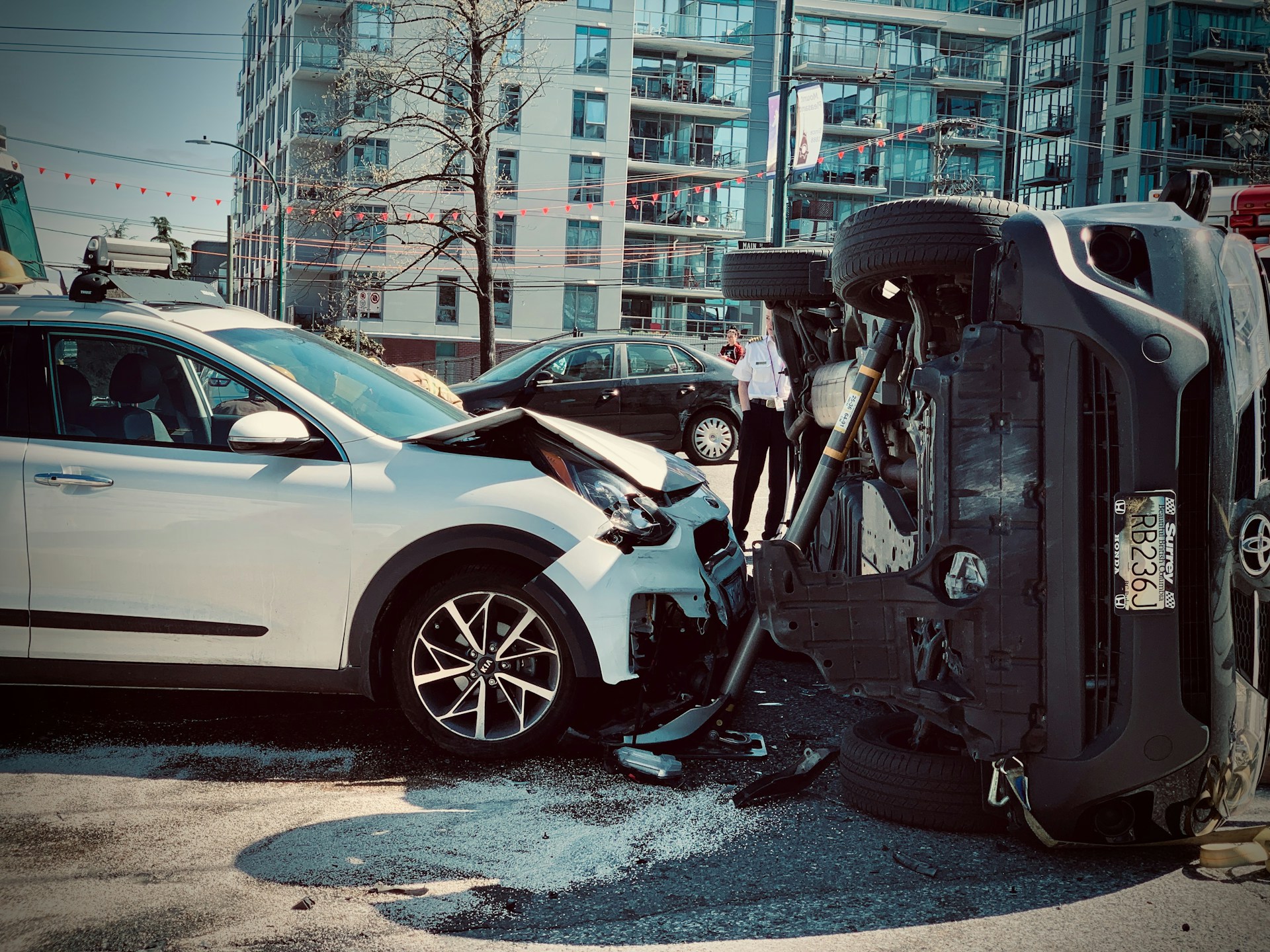Law
How to Prepare for Legal Consultations

When seeking legal assistance, whether for family matters or injury compensation, the effectiveness of your consultation with a lawyer can significantly impact the outcome of your case. Proper preparation is key to making the most of these meetings. Here’s a comprehensive guide to help you prepare for a legal consultation and ensure you’re well-equipped to address your legal concerns.
Understand Your Legal Needs
Before scheduling a consultation, it’s vital to clearly define your legal needs. Are you dealing with a family dispute, such as divorce or custody issues, or do you require assistance with a personal injury claim? Understanding your primary concerns will help you choose a lawyer with the relevant expertise. For example, if you need assistance with family law matters, look for a lawyer experienced in this area, such as those at lionheartlawyers.com.au, who can provide tailored advice and support.
Additionally, it might be useful to research the specific area of law relevant to your case. This can give you a basic understanding of what to expect and help you ask informed questions during the consultation. Familiarising yourself with terms and procedures can also make the consultation more efficient.
Gather Relevant Documents
Organising all pertinent documents is crucial for a productive consultation. Essential documents may include:
- Contracts: Any agreements related to your case, such as business contracts or rental agreements
- Correspondence: Letters, emails, or other communications related to your case
- Court Orders: Previous court decisions or orders relevant to your situation
- Medical Records: For injury claims, medical reports, bills, and records of treatment
- Financial Statements: Bank statements, tax returns, and other financial documents if your case involves financial aspects
Having these documents organised and readily available will help your lawyer understand the specifics of your case more quickly and accurately. Consider creating a file or folder to keep everything together and make it easier to present during your consultation.
Prepare a List of Questions
To maximise the benefit of your consultation, prepare a comprehensive list of questions to ask the lawyer. Some key questions might include:
- Experience: “What is your experience with cases similar to mine?”
- Approach: “How will you approach my case and what strategies will you employ?”
- Fees: “Can you explain your fee structure and any additional costs I should anticipate?”
- Timeline: “What is the estimated timeline for my case and what are the key milestones?”
- Communication: “How will we communicate, and how often can I expect updates?”
Preparing these questions in advance ensures that you cover all necessary topics and evaluate whether the lawyer’s approach aligns with your needs and expectations.
Be Honest and Open
Effective legal representation hinges on honesty and transparency. Provide your lawyer with all the relevant facts of your case, even if they seem unfavourable since you will be protected by legal professional privilege anyway. This includes any information that might not be immediately apparent but could impact your case. For instance, if you are dealing with a family law issue, disclosing all relevant details about your family dynamics and financial situation will enable your lawyer to develop a comprehensive strategy.
Being open about your concerns and objectives also allows the lawyer to tailor their advice to your specific situation, ensuring that you receive the most relevant and effective legal guidance.
Discuss Fees and Costs
Understanding the financial aspects of legal services is essential to avoid any surprises. Discuss the lawyer’s fee structure thoroughly. Lawyers may charge in various ways, including:
- Hourly Rates: Charges based on the amount of time spent working on your case
- Fixed Fees: A set amount for specific services or case types
- Contingency Fees: A percentage of the amount awarded or recovered, typically used in personal injury cases
Clarify what services are covered under the agreed fee and if there are any additional costs, such as court fees or administrative expenses. Make sure you understand the payment terms and any potential extra costs that could arise.
Know What to Expect
Each lawyer has his own style and procedures. Familiarising yourself with what to expect during the consultation can make the process smoother. Generally, the lawyer will review the information you provide, ask questions to clarify details, and offer preliminary advice based on their initial assessment. This is also your opportunity to gauge their communication style and ensure it aligns with your expectations.
Follow-Up Actions
After the consultation, there may be follow-up actions required to keep your case moving forward. These could include:
- Providing Additional Documentation: Any extra information requested by the lawyer.
- Making Decisions: Choosing whether to proceed with the lawyer or seek further advice.
- Scheduling Further Meetings: Planning additional consultations or meetings as needed.
Being prompt and organised in handling these tasks is crucial for the smooth progress of your case.
Conclusion
Preparing for a legal consultation involves understanding your needs, gathering relevant documents, preparing thoughtful questions, and discussing fees. By following these steps, you’ll be well-prepared to engage in a meaningful dialogue with your lawyer and make informed decisions about your case. Whether you are dealing with family law issues or seeking compensation for an injury, thorough preparation will help you navigate the legal process with confidence and clarity.
Law
The Challenges of Multi-Vehicle Accident Cases

Multi-vehicle accidents, also known as pile-ups or chain-reaction crashes, involve three or more vehicles colliding in a sequence. These accidents often occur on busy highways or during adverse weather conditions — leading to a chaotic scene with multiple injured parties and extensive property damage.
Infact, according to the National Highway Traffic Safety Administration (NHTSA), multi-vehicle crashes accounted for approximately 41% of all fatal crashes in the United States.
In today’s blogs, we’ll dive into the different types of multi-vehicle accidents, explore the common challenges of Multi-Vehicle Accident Cases, and offer practical tips on how to handle them effectively.
Types of Multi-Vehicle Accidents
Multi-vehicle accidents can occur in various ways, each with its own set of challenges in determining fault and liability. Here are some types of these accidents.
Rear-end collisions
Rear-end collisions are the most frequent type of multi-vehicle accident, often creating a chain reaction that can involve several vehicles. These accidents typically happen when one driver doesn’t stop in time and hits the vehicle in front.
Side-impact collisions
Side-impact collisions, often called “T-bone” accidents, happen when one vehicle crashes into the side of another, usually at an intersection or during a lane change.
These crashes can be particularly dangerous because there’s less structural protection on the sides of cars compared to the front or rear.
Head-on collisions
Head-on collisions are the stuff of nightmares. They happen when two vehicles traveling in opposite directions crash into each other head-on, often at high speeds.
Rollover accidents
Rollover accidents are some of the most dramatic and dangerous types of crashes.
As the name suggests, they involve a vehicle flipping onto its side or roof. The sudden shift in weight can cause it to tip over and roll.
Common Challenges in Multi-Vehicle Accident Cases
Multi-vehicle accident cases are often more complex than two-car accidents. Here are some unique challenges of these cases.
Determining Fault
One of the biggest challenges in multi-vehicle accident cases is determining fault. With multiple vehicles involved, it can be difficult to pinpoint who initiated the chain reaction and who may be partially or fully responsible for the damages.
It has a chain of events.
Multiple Vehicles Involved
The more vehicles involved in an accident, the more complex the determination of fault becomes. Each driver’s actions and the sequence of events need to be carefully analyzed to determine their contribution to the accident.
Contributory Negligence or Comparative Fault
Some states follow a contributory negligence rule, meaning that if you are even slightly at fault for the accident, you may be barred from recovering any compensation. Other states follow a comparative fault rule, where your compensation may be reduced based on your percentage of fault.
Witness Statements and Evidence
Witness statements and evidence, such as photos, videos, and traffic camera footage, can be crucial in establishing fault in multi-vehicle accidents. Your Tampa car accident lawyer will work to gather and analyze all available evidence to build a strong case on your behalf.
Insurance Coverage
Dealing with insurance companies after a multi-vehicle accident is a frustrating and time-consuming process.
It can include.
Underinsured or Uninsured Drivers
If one or more drivers involved in the accident are underinsured or uninsured, it can complicate the process of obtaining compensation for your damages.
Study by the Insurance Research Council, a staggering 14% of U.S. drivers – that’s about one in seven — are uninsured.
Multiple Insurance Policies
With multiple vehicles involved, there may be multiple insurance policies at play. This can lead to disputes between insurance companies about which policy should cover your damages. Your attorney can play a great role in this situation.
Policy Limits and Coverage Disputes
Insurance policies have limits on the amount of coverage they provide. In a multi-vehicle accident with severe injuries or extensive property damage, these limits may not be sufficient to cover all your losses. Your car accident attorney in Tampa can help by filing a lawsuit.
Medical Complications
Multi-vehicle accidents often result in multiple injuries with varying degrees of severity. These injuries can have long-term consequences, requiring ongoing medical treatment and rehabilitation.
Multiple Injuries and Long-Term Consequences
If you’ve suffered multiple injuries in a multi-vehicle accident, it’s crucial to seek medical treatment and document all your injuries and their impact on your life. Your attorney can help you gather medical records and expert opinions to support your claim.
Tips for Handling Multi-Vehicle Accident Cases
While multi-vehicle accident cases can be complex, there are strategies you can employ to protect your rights and increase your chances of a favorable outcome.
Gather Evidence
Collect as much evidence as possible at the accident scene, including photos, videos, and witness contact information. Resource says obtain a copy of the police report and keep all medical records related to your injuries.
Consult with an Attorney
Seek legal counsel from an experienced car accident attorney as soon as possible. They can help you understand your rights, evaluate your case, and guide you through the legal process.
Insurance Claims
File your insurance claims promptly and provide all necessary documentation. Be prepared to negotiate with insurance companies and don’t accept a settlement offer without consulting with your attorney.
Medical Treatment
Seek immediate medical attention after the accident, even if you don’t feel injured. Some injuries may not be immediately apparent. Follow your doctor’s recommendations for treatment and rehabilitation.
Emotional Support
If you’re struggling with the emotional aftermath of the accident, don’t hesitate to seek counseling or connect with support groups.
Settlement or Trial
Carefully evaluate your options with your attorney. Be prepared for a lengthy legal process if you decide to go to trial. But don’t worry, if you’ve an expert attorney on your side — it will feel like butter for you.
Wrap Up
Multi-vehicle accident cases are challenging, but with the right legal representation and a proactive approach, you can handle the complexities and seek the justice and compensation you deserve.
But you don’t need to face this alone. An experienced attorney can be your advocate, guiding you through the legal process and fighting for your rights every step of the way.
Law
Why Choosing the Right Legal Representation Matters in Las Vegas

You could be walking through the Las Vegas strip, and the next thing you know, you are on the floor because you have slipped on some random liquid. Now, you are on a gurney with paramedics putting a neck brace on you, and you are on your way to the hospital. The medical bills have already started mounting, you are in pain, and you certainly can’t go to work now. This falls under the personal injury banner, and this is where a personal injury lawyer, Las Vegas can come and help out. This attorney will make all the difference in how you recover and move forward in the days to come.
The High Stakes of Legal Representation
In a town where things happen in the blink of an eye, the worst moments can take a lifetime to recover from. With hospital bills, insurance fees to keep tabs on, and a boatload of appointments to schedule. In such an instance, a personal injury lawyer from Sin City is certainly an asset. They are there to be an advocate to protect your rights and get you what’s entitled to you. Knowing the laws and how they operate in the area you live in, a knowledgeable lawyer can help work wonders in the outcome of your case.
Experience Speaks Volumes
When seeking a personal injury lawyer in Las Vegas, look for experience. You want a lawyer who has seen it all and knows Nevada law inside and out. Having an experienced lawyer on your case can help you anticipate the other side’s moves and help you make countermove responses. An experienced lawyer also knows what to expect, so you’ll feel more prepared and informed throughout your case.
Personalized Attention and Support
In addition to expertise, good representation offers you excellent personal attention. A great attorney listens to your story, learns about your concerns and your goals, and creates an answer for the problem specific to your case. Personal attention can keep you calm when you are very anxious and provide comfort in knowing there is someone fighting for your side and on your behalf. It’s more than what to do; it’s about having faith, trust, and a relationship.
The Power of Strong Negotiation Skills
In most personal injury cases, a big part of the battle happens out of the courtroom. A good negotiator can be a difference-maker. Lawyers who know their business and have a history of successful negotiations will be able to influence insurance companies to compensate you fairly without a trial. They can use their knowledge and experience to protect your well-being and future.
Proven Track Record and Reputation
You can tell a lot about how competent a lawyer is by the records and reputation they have created for themselves. You can look up reviews of client responses and see what kind of courtroom victories your potential candidate might have under their belt. A record of a lawyer winning cases left and right says a lot about what all they know and how hardworking they are. Their community reputation can also be another telling factor as well.
Making the Right Choice
So when you break it down, you will get the best Las Vegas legal representation if they are experienced, know how to negotiate, are a good listener, and have empathy towards you because all that will ultimately lead to the success of your case.
Law
Average Wrongful Death Settlements in the US

Experiencing the death of a family member because of another person’s carelessness or deliberate behavior is a heart-wrenching event. In these sorrowful situations, relatives frequently look for legal redress and monetary reimbursement by hiring an unwarranted death lawyer. Knowing what a typical settlement for a wrongful death case in the U.S. looks like can offer insight and direction during these challenging periods.
What is Wrongful Death?
A wrongful death happens when someone passes away because of someone else’s carelessness, boldness, or deliberate behavior. This can happen in different scenarios like vehicle crashes, medical mistakes, accidents at work, or criminal activities. Wrongful death claims are filed to make the at-fault individuals responsible and to ask for payment for the deceased person’s family’s damages.
Factors Affecting Wrongful Death Settlements
Several factors influence the amount of compensation awarded in wrongful death settlements:
- Economic Damages: These cover money spent on medical care, funerals, lost income, and what the person would have made later.
- Non-Economic Damages: These include feeling sad, the emotional hurt from losing someone, the pain from losing friends and family advice, and the help the person gave.
- Punitive Damages: When someone is very careless or mean on purpose, they might get extra money as a punishment to stop them and others from doing the same.
Typical Settlement Amounts
Every wrongful death case is different, but there are some common trends and typical amounts that courts see across various cases:
- Medical Mistakes: Deaths from medical mistakes usually result in bigger payouts because the mistakes are often complex and harmful. The final amount can be from hundreds of thousands to millions of dollars, depending on the details.
- Car Crashes: If someone dies in a car crash, especially if the other driver was drunk or careless, the settlement can be very large.
- On-the-Job Deaths: If a worker dies because of unsafe conditions or the employer’s mistake, the family might get money for lost income and benefits, as well as for their emotional loss.
- Product Problems: If a person dies because of a faulty product, the company might have to pay a lot, especially if they knew the product was dangerous or didn’t warn people.
- Criminal Actions: If a death is due to crimes like assault or murder, the criminal trial might affect the civil case for wrongful death and the settlement amount.
Process of Obtaining a Settlement
Getting a wrongful death payout usually includes these steps:
Talk to a lawyer: Families should consult with an experienced Pi lawyer who can assess the case, determine liability, and estimate potential damages.
Look for proof: Lawyers will investigate, collect evidence, and ask experts to help make a strong case showing that someone was negligent or did something wrong.
Try to settle: Lawyers will talk to the insurance company or the other side’s lawyer, or even directly with the other party’s lawyer, to agree on a fair settlement.
If needed, go to court: If a fair deal can’t be made through talking, the case might go to court where a judge or jury will decide who’s at fault and decide on the payment amount based on the evidence shown.
Final Thoughts
Handling a wrongful death lawsuit can be hard on grieving families, both emotionally and legally. Knowing the key elements that affect settlement outcomes and common amounts of money paid can assist families in deciding if they want to go forward with a lawsuit. With the help of a caring and knowledgeable wrongful death lawyer, families can find justice, hold those at fault accountable, and get financial support to deal with the costs and feelings that come with the loss.
-

 GENERAL1 year ago
GENERAL1 year agoDiscovering the Artistic Brilliance of Derpixon: A Deep Dive into their Animation and Illustration
-

 Posts1 year ago
Posts1 year agoSiegel, Cooper & Co.
-

 Lifestyle1 year ago
Lifestyle1 year agoPurenudism.com: Unveiling the Beauty of Naturist Lifestyle
-

 Lifestyle1 year ago
Lifestyle1 year agoBaddieHub: Unleashing Confidence and Style in the Ultimate Gathering Spot for the Baddie Lifestyle
-

 HEALTH1 year ago
HEALTH1 year agoTransformative Health Solutions: Unveiling the Breakthroughs of 10x Health
-

 Entertainment1 year ago
Entertainment1 year agoGeekzilla Podcast: Navigating the World of Pop Culture, Gaming, and Tech
-

 Entertainment1 year ago
Entertainment1 year agoKhatrimaza Unveiled: Exploring Cinematic Marvels and Entertainment Extravaganza
-

 Lifestyle8 months ago
Lifestyle8 months agoSandra orlow: Unraveling the Story of an Iconic Figure
